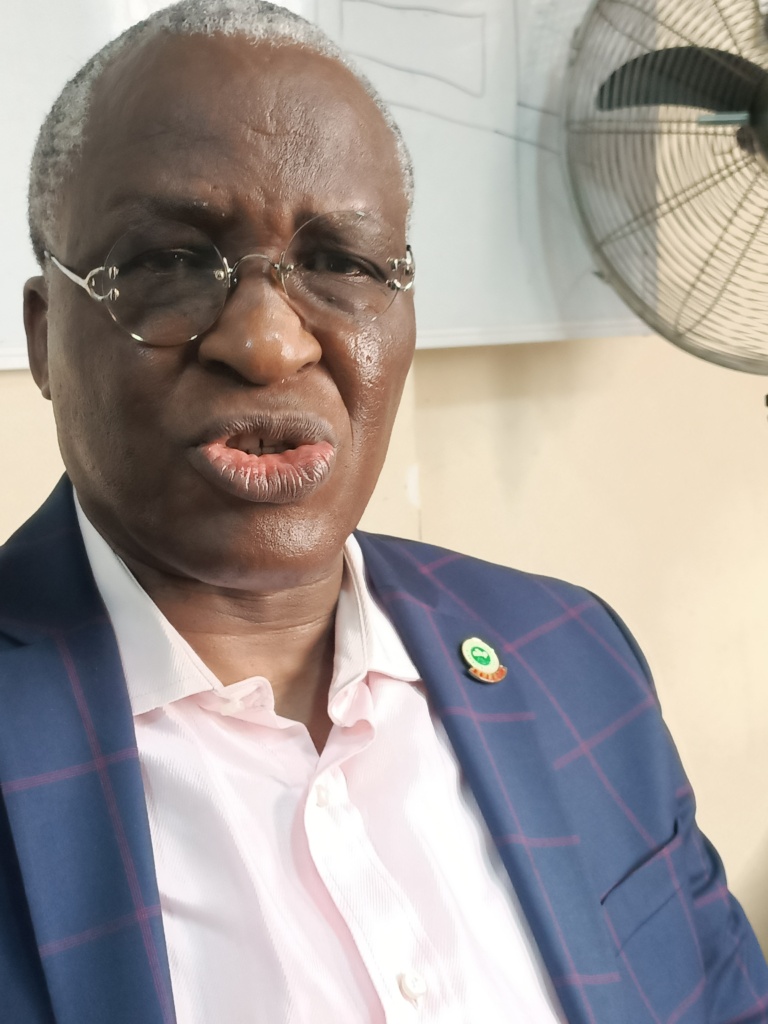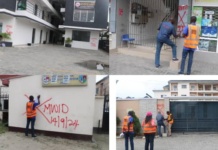
Mr Olutoyin Ayinde, a former Commissioner for Physical Planning and Urban Development in Lagos State and Past President of the Nigerian Institute of Town Planners in this interview with DAYO JACOB, spoke specifically on how to organise the physical environment for effective land management. He is of the opinion that for any meaningful real estate development that will bring about organized environment, current policy on land management in Nigeria must change.
For people looking for where to put their money for high return on investment, what should they be looking for in terms of real estate’s investment in Nigeria?
Our real estate industry still has a lot to do. Infact, the way we are going now, we are likely to run into some problems because we don’t seem to have the right model of development.
Real estate starts from land management. Real estate is a product of good management of land because if you are going to build, it is on land. An efficient land management system relies on planning. All over the world, land is fixed; land does not increase; so when you have a resource that doesn’t increase, the only way you can effectively manage it is to plan how to use it. So we find something wrong with our land management system because in Nigeria, land is allocated to individuals.
Government is not paying sufficient attention to manage the only resource that all of us have to live on.
The only resource that we all have that we do real estate, we can do industry, we can do agriculture, we can have conservation, we can do recreation, is just land. Surprisingly, land is usually not left to the hand of anyone, but in Nigeria, it is in the hands of people.
We have Omo-oniles that are doing their own, we have the state government doing their own. Even when the state government wants to develop its own, the authority shares it to individuals. Individuals at best are informal. So when you put a group of individuals and they begin to develop their own or whatever they have capacity to do, you will achieve very little. If you look into the trend in other countries, especially developed countries, you will observe that land is not allocated to individuals. Land is allocated to corporate entities, cooperative, corporation council, who build houses en-mass, depending on the needs of the people. So they build those houses and people like us who need accommodation will now subscribe to the one that we want.
Because I subscribe to what I needed at a particular time, when the time comes that I do not need that accommodation again, I can put it back in the market and move for something smaller. For example, I live in a 4-bedroom house built by myself because of the Nigeria system so I got land allocated to myself. Now my children are out, remains my wife and I, but I can’t leave the building because I built it, it is mine, I’m tied to it.
But if I had bought it in the market and I know that I have no need for 4-bedroom again, I sell it in exchange for smaller one. This has not taken place in Nigeria, and the fact that we have not adopted that style is making us spread because when the good land is exhausted, they move on to the land for agriculture. You will discover that in Lagos state, most of what is called agric land has been redesignated even by agric land holdings itself. It has been redesignated for residential. By the time that is done, we loose capacity to feed ourselves because any land you have built on, you can’t plant on it anymore. These things go on to marshy areas, areas that would have been absorbing the floods, areas that would have provided some resilience against natural disaster, we continue developing there.
This happens because all of what we are doing are informal. So for us to do any meaningful real estate that will bring about organized environment, there is need to do a rethinking about our land management system. Our policy on land management must change.
Who will spearhead what you are referring to?
Government has to take leadership but we need professionals like us talking to government. Government must take leadership because he will speak to the traditional rulers, family heads, people who think they have the land or it belongs to them because it is a totally different kind of mindset. This has to change. The truth is if you want to take something from someone, you must have something else to offer him. So there can be various development models for this land rather than allocate or sell it to individuals. Let this company take it, you will get so much as part of the profit. This helps you going because at the end of the day what everybody wants is profit, something to keep going on, so that’s what has to happen. There is no way we can sustain this. There may be some political undertones but the reason we are having farmers/herders clash is because of our poor land management. A lot of land where animals would have grazed before have been built on. Whether you like it or not, there are communities that are clashing now on their boundaries. They are fighting over land because we are unable to manage our land. They are just spreading. So, until we speak to communities, speak to leaders and let people know that for development, you have to submit what you have so that we can develop as a corporate entity. It is then we can grow together and have beautiful cities.
Let’s look at the recent issue of fire incident in Lagos Island, it has become frequent. What do you think can be done to put an end to this?
Lagos island is a recipe for disaster. Every kind of planning law has been contradicted and the only result is disaster. If you ask me, Lagos Island needs a lot of regeneration, total regeneration. There are plots that people keep on subdividing because they feel is their inheritance. If one man has ten children, he wants to split the land, and by the time you are looking at it, you now have a kind that can take 20 square meters and he wants to put on a building. You see such things a lot in Lagos.
They are recipes for disaster. We must have a government that is able to reach out to those people and let them know that you can only see what you want but not this way. Government must let them know that they can develop better, go higher, have more airspace, have roads that are accessible. A lot of roads are not accessible and people have built. Someone said no matter how far you have gone into the bush, if you realize it is not the right way, you take a U turn.
I believe that we need to pull down a number of times. We shouldn’t pull down senselessly. We should sit down, take inventory of the whole thing and let’s just restructure, let’s do regeneration. When I was in government, I remembered that a group led by Ayo Asafa prepared a Lagos island West Plan, which was basically an urban regeneration, but it hasn’t been implemented. The opportunities are there to start doing some of these things to build a new Lagos. The whole Nigeria is a market for regeneration. I was looking at the Google image view of the largest Catholic Church in the world. It is here, just look at the environment, these are not bungalows, these are big houses. You can see the number of floors, you will see that everything is similar, they are not individual buildings, they are planned. They did not get to this place by allocating the land to individuals, they allocated to companies. When companies build, they do it in an orderly way because they are using professionals. So we must get to that level in Nigeria.
When you talk about urban regeneration in Nigeria, is there any opportunities for Nigerians in diaspora for investment purpose?
There is! The thing about investment that we need to understand first is that you don’t plan in one day and get your profit that same day. So do studies; your studies would have mapped out when you are likely to get your profit. The market is there, the population is there, people need houses in Nigeria. You know why BRF said the figures of housing deficit might not be true. You know why he said so? In my house, there are 3 rooms unused. There are people from the eastern part of Nigeria, who are living in Lagos and they have a culture that they must build in their village. So there are hundreds of buildings in the eastern part of Nigeria that are just there, nobody is living there. Who is counting? Who is taking inventory? It is so because of the fact that we allocate land to individual. So it is piece mill.
For as long as we allocate lands to individuals, we will have as many designers as the number of individuals. We will have as many engineers, we will have different designs, and we will have different access to funds. So we still need to rejig, rediscover our real estate.
You mean they should organize themselves? How can they do it without getting their fingers burnt?
Look before you leap! One of the things I have identified with Nigerians is that we don’t think our programmes, we are just interested in that profit. That’s not the way it is done. Yes, there will be profit but there must be input, there must be time over it.
Until these things are done, they can’t come and do some wishy-washy. There are some people who do it, just make something, but it is not sustainable. Look outside now, is that an organized environment? That’s one of the best estates but you just see buildings anyhow; different shapes, no regularity, no uniformity. It is so because it’s done by individuals. What is my size, you give me land, I build on it, you give another person, he has money and build three floors, it doesn’t matter. You can’t go to the United Kingdom and see buildings like this. Even when there are thousands of buildings, you see them in uniform, you see them looking one like the other.










